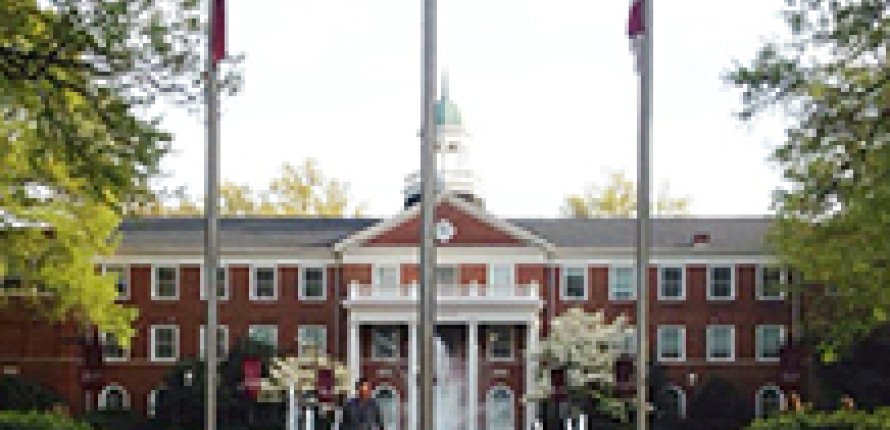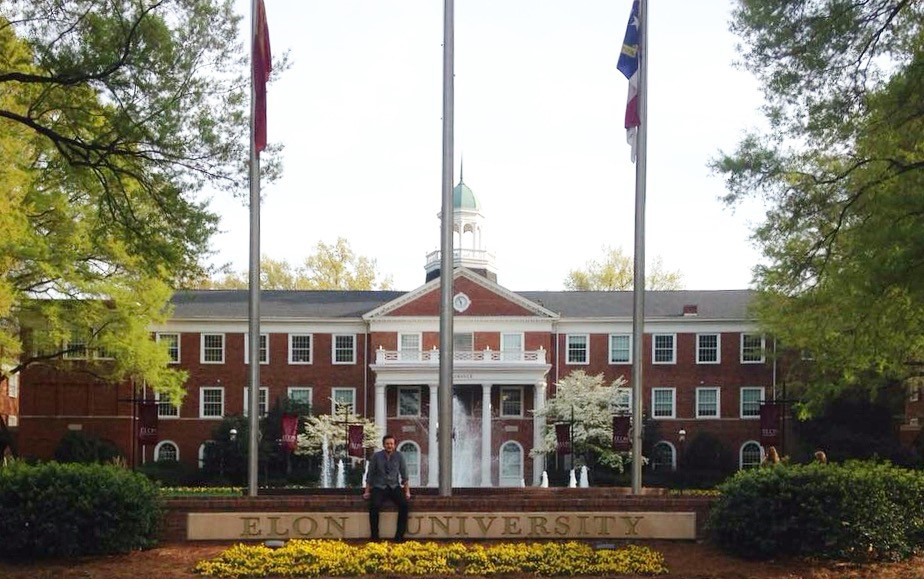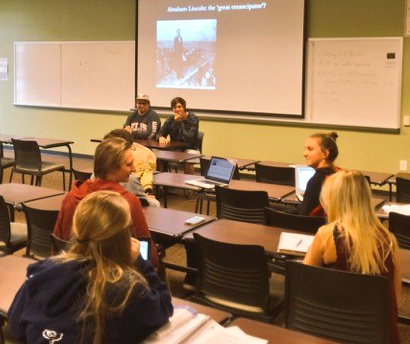My Fulbright Scholar Experience at Elon University

Christian O’Connell, Senior Lecturer of American History, University of Gloucestershire, UK
2015-2016 Fulbright Visiting Scholar to Elon University
Four months might not seem like a long time, but thinking back about everything I’ve done in North Carolina during my Fulbright experience, I really had to narrow it down for this blog post. There have been encounters with fascinating people, including a number of connections for the future, theatrical performances, live music, sports and visits to numerous interesting locations. Using the weekends and teaching breaks, I’ve gone north to Washington, D.C. and Charlottesville in Virginia (home to Thomas Jefferson’s residence, Monticello) and travelled North Carolina from the Appalachians to the Outer Banks. I can’t imagine I will ever have another opportunity to do so much travelling in such a short period as part of my career. There are many adjectives that get used repeatedly to describe Fulbright experiences, and I’m not going to break with tradition. It truly has been life changing on many different levels.

Teaching American history and studies at Elon University has been a wonderful opportunity. Working through the initial surprise that a British lecturer would come to the United States to teach Americans about the history and culture of their country, I have learned a lot about how young people in the United States view and value diverse aspects of their history through the small interactive classes at Elon. It has also allowed me to appreciate more closely how aspects of the American past affect the present day, particularly with ongoing Presidential primaries and contested laws such as that of the Public Facilities Privacy & Security Act in North Carolina (or HB2). This experience has already affected my own thinking about American history and has provided me with invaluable insights that I believe will greatly benefit my students at the University of Gloucestershire in the UK. In addition, while at Elon I was able to meet lots of faculty and learn about different approaches to teaching. One of the main adjustments I had to make coming over the U.S. was that academics are given much more freedom and oversight of their curricula. While very liberating, it was slightly unnerving at first. After observing some of colleagues at Elon, I decided to embrace some of their techniques, such as more varied and numerous forms of assessment. I actually found that this could be more closely integrated into classroom activity, allowing for much more engagement and learning through assessment, rather than simply testing.

I have also made some very valuable connections at Elon for future collaborations with people such as Prof. Samuele Pardini, particularly with regards to my new project on African American culture in Italy. I am beginning to examine the experiences of African American soldiers in Italy during WWII, and how they interacted with Italians. Prof. Pardini works on the relationship between Italian and African Americans to address the complex nature of racial discourse in American culture. He is also Vice-President of the Italian American Studies Association, an organization of which I intend to become a member, as people involved there will be invaluable to my pursuit of this project. However, the fascinating aspect of this link is that Prof. Pardini’s father actually experienced the arrival ‘Buffalo Soldiers’ in Tuscany between 1943-45, and I am therefore planning to travel to Italy to interview him as well as others with similar memories.
While in the United States, I also took advantage of the Outreach Lecturing Fund to spend a very enjoyable day at Tennessee State University, a Historically Black University (HBCU) in Nashville, Tennessee. While there, I also gave a talk as part of their Samuel H. Shannon Distinguished Lecture Series on my new book, Blues, How Do You Do? I had the pleasure of meeting with Prof. Michael Bertrand, author of the great book Race, Rock and Elvis (Illinois, 2005). He allowed me to take a class with some great students about researching the blues and transatlantic history and it was very interesting to see other experiences of American higher education. TSU is a very different institution to Elon, catering to the needs of very different students in socio-economic terms, so the experience was revealing in learning how inequality is engrained with U.S. higher education. The students at TSU demonstrated a high level of intellectual curiosity despite the numerous challenges they faced, and this is indicative of the great work of institutions with fewer resources such as TSU. This was a great opportunity not only to discuss my research with the faculty, but also to meet students in a very different academic context.
